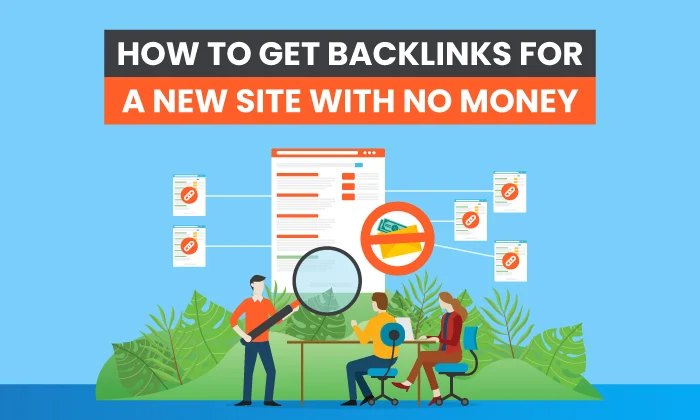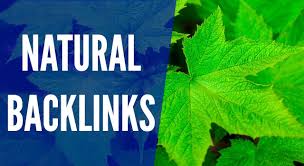How to Get Natural Backlinks Built to Your Blog
In the vast digital landscape, backlinks serve as crucial signposts that direct search engines and users towards quality content. Backlinks are hyperlinks from external websites that point back to your blog or website. They act as endorsements and votes of confidence, indicating that your content is valuable and trustworthy. While acquiring backlinks can be challenging, the benefits they bring to your blog’s visibility, authority, and search engine rankings are worth the effort.
What are Backlinks?
Backlinks are inbound links that connect one website to another. They play a significant role in search engine optimization (SEO) by establishing credibility, popularity, and relevance. When search engines discover numerous backlinks to a website, they interpret it as a signal that the content is valuable and worthy of higher rankings in search results.
The Importance of Natural Backlinks:
Natural backlinks are those that are earned organically, without any manipulation or artificial methods. Search engines value natural backlinks because they reflect genuine appreciation and endorsement from other websites. Natural backlinks contribute to a blog’s overall authority and can positively impact its search engine rankings. They are also more likely to drive relevant traffic to your blog, increasing its visibility and audience engagement.
Creating High-Quality Content:
To attract natural backlinks, it is essential to focus on creating high-quality content that resonates with your target audience. Here are some key steps to follow:
- Conducting Keyword Research: Before creating content, conduct thorough keyword research to understand the topics and phrases your audience is searching for. This will help you align your content with popular queries, increasing the chances of attracting backlinks.
- Crafting Engaging and Valuable Content: Create informative, well-researched, and engaging content that provides value to your readers. By offering unique insights, practical tips, or expert opinions, you increase the likelihood of other websites linking back to your content.
- Utilizing Visuals and Multimedia: Enhance your content with visuals such as images, infographics, and videos. Visual elements make your content more visually appealing, shareable, and link-worthy.
Building Relationships with Influencers and Bloggers:
Collaborating with influencers and bloggers in your niche can help you gain valuable backlinks and exposure. Here are some effective strategies:
- Guest Blogging: Offer to write guest posts for authoritative blogs in your industry. Guest blogging allows you to showcase your expertise, reach a wider audience, and earn backlinks to your blog.
- Collaborating on Expert Roundups: Participate in expert roundups where multiple industry experts contribute their insights on a specific topic. When your contribution is included, it often comes with a backlink to your blog.
- Interviewing Influencers: Conduct interviews with influential figures in your niche. When the interview is published on your blog, you can request that they share it on their social media platforms or link to it from their own website.
Utilizing Social Media:
Social media platforms provide an excellent opportunity to build relationships, amplify your content, and attract natural backlinks. Consider the following tactics:
- Sharing Content on Social Platforms: Regularly share your blog posts on social media platforms, making it easy for your followers to discover and share your content. Engaging captions and enticing visuals can attract attention and encourage backlinking.
- Engaging with Your Audience: Respond to comments and engage with your audience on social media. By fostering meaningful conversations and building relationships, you increase the likelihood of others linking to your content.
- Participating in Relevant Communities: Join industry-specific communities and forums where your target audience and influencers gather. Provide valuable insights and contribute to discussions, establishing yourself as an authoritative figure in your niche.
Implementing Effective Link Building Strategies:
There are various link building strategies that can help you attract natural backlinks. Some effective approaches include:
- Broken Link Building: Identify broken links on authoritative websites in your niche. Reach out to the website owners, notifying them of the broken links and suggesting your relevant content as a replacement. This approach offers a win-win opportunity for both parties.
- Resource Link Building: Create comprehensive, evergreen content that serves as a valuable resource for your audience. Reach out to websites and blogs that have linked to similar content in the past, informing them about your updated and more comprehensive resource.
- Skyscraper Technique: Identify popular and link-worthy content in your niche, then create even better and more comprehensive content on the same topic. Reach out to websites that have linked to the original content, showcasing your improved version.
- Outreach and Networking: Actively reach out to bloggers, influencers, and website owners in your industry. Introduce yourself, offer valuable insights or collaboration opportunities, and kindly request backlinks when appropriate.
Monitoring and Analyzing Backlinks:
Regularly monitoring and analyzing your backlinks is crucial to ensure their quality and relevance. Consider the following steps:
- Using Backlink Analysis Tools: Utilize backlink analysis tools like Ahrefs, Moz, or SEMrush to track and analyze your backlink profile. These tools provide insights into the number of backlinks, their sources, and the overall quality of your backlink profile.
- Assessing the Quality of Backlinks: Evaluate the quality of your backlinks based on factors such as the authority and relevance of the linking websites. Disavow any harmful or low-quality backlinks that could potentially harm your blog’s rankings.
- Removing Harmful or Low-Quality Backlinks: If you identify spammy or irrelevant backlinks pointing to your blog, reach out to the website owners and request their removal. If unsuccessful, you can disavow those links through Google Search Console.
Avoiding Black Hat Practices:
To maintain a healthy and reputable backlink profile, it is crucial to avoid black hat practices that can harm your blog’s SEO. Stay away from:
- Buying Backlinks: Purchasing backlinks violates search engine guidelines and can lead to severe penalties. Focus on earning backlinks organically through valuable content and relationship-building.
- Participating in Link Schemes: Avoid participating in link schemes that aim to manipulate search rankings. These schemes can include link exchanges, link farms, or private blog networks (PBNs). Instead, prioritize natural and ethical link building strategies.
- Keyword Stuffing: Do not overuse keywords in your content or anchor text. Instead, focus on creating valuable and user-friendly content that naturally attracts backlinks.
Conclusion:
Building natural backlinks to your blog requires a combination of high-quality content creation, relationship-building, effective link building strategies, and ethical SEO practices. By consistently delivering valuable content and engaging with your target audience and industry influencers, you can attract natural backlinks that boost your blog’s visibility, authority, and search engine rankings.
FAQs
The impact of natural backlinks on SEO can vary depending on factors such as the authority of the linking websites and the competitiveness of your niche. In general, it may take several weeks or months to see noticeable improvements in search engine rankings.
While it’s possible to earn backlinks through relationship-building and other strategies, creating high-quality content remains a crucial factor in attracting natural backlinks. Compelling content acts as a magnet, enticing others to link back to your blog.
Quality should always take precedence over quantity when it comes to backlinks. It’s better to have a few high-quality, relevant backlinks from authoritative websites than numerous low-quality backlinks that could harm your blog’s reputation.
Not all backlinks are beneficial. It’s important to assess the quality and relevance of the linking websites. Backlinks from authoritative and reputable websites within your niche are more valuable and have a positive impact on your blog’s SEO.
Disavowing backlinks should be done cautiously and selectively. Focus on removing or disavowing backlinks from spammy or irrelevant websites that could potentially harm your blog’s rankings. Consult with SEO professionals if you’re unsure about specific backlinks.








